| Reviews & Columns |
|
Reviews DVD TV on DVD Blu-ray 4K UHD International DVDs In Theaters Reviews by Studio Video Games Features Collector Series DVDs Easter Egg Database Interviews DVD Talk Radio Feature Articles Columns Anime Talk DVD Savant Horror DVDs The M.O.D. Squad Art House HD Talk Silent DVD
|
DVD Talk Forum |
|
|
| Resources |
|
DVD Price Search Customer Service #'s RCE Info Links |
|
Columns
|
|
|
Histoire(s) du cinéma
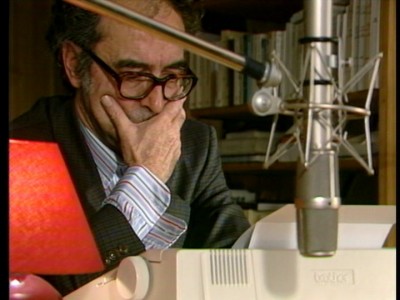
Has there ever been a cinematic mind as restless and voracious as that of the great French auteur, provocateur, and aesthetically/politically radical Jean-Luc Godard? His best-known and most widely liked, New Wave-defining films of the '60s are themselves a succession of increasingly complex, fragmented, politically and culturally engaged narratives whose far-ranging, omnivorous frames of reference (sampling liberally from all aspects of cinematic, literary, artistic, and political history) make sparks fly with their astute, bracing juxtapositions and aphorisms (the most famous likely being the "children of Marx and Coca-Cola" intertitle in Masculin-Féminin). His subsequent career has been one of increasing formal and structural radicalization that testifies in every frame to his unwillingness to rest on his stylish '60s laurels and his concurrent total disregard for how many former fans he alienates. His unceasing, pioneering adventurousness--his need to challenge himself, and us--has led to such late-career masterpieces as 2001's Éloge de l'amour (In Praise of Love) and 2004's Notre Musique, but surely the most fabled project of his post-New Wave career--the one with the broadest scope and most ambitious aims--is the one that Olive Films has now, at long last, released on Region 1 DVD: his decade-in-the-making (1988-1998), exhausting and exhaustive eight-part summation of the cinematic medium itself, Histoire(s) du cinéma.
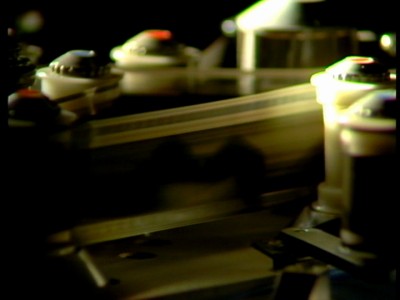
That is not to imply that Histoire(s) du cinéma works in any way as a mere dutiful documentary accounting of the different episodes of cinema's evolution over the 20th century. Godard's goals here have nothing to do with introducing anyone to the history of the cinema, with all its periods, phases, and genres that have been well charted and described many times before. (In fact, coming to this film without some preexisting familiarity with the basic historical timeline of film virtually guarantees that you'll be lost, confused, and probably angry; call him a perverse, pretentious elitist (you wouldn't be the first), but Godard's feverish, urgent meditation is quite forthrightly for the already-initiated only.) What he is doing is grappling before our very eyes with a profound ambivalence arising from the irreconcilable (or is it?) clash between his instinctive love of the medium and its countless compromises and impurities; its constant complicity with the injustice and violence of the century it belonged to and defined (the horrors of Nazi Germany, occupied France, and Sarajevo come up more than once in the context of their sometimes socio-economically direct and troubling relationships to various film industries that kept on through the atrocities, with newsreels, documentary footage, and Germany Year Zero cut in alongside everything else to explore in what contorted ways these sobering images, the gorgeous artifice of classical Hollywood film, and pornography, among other things, all exist rather uncomfortably together as "cinema"); and his nagging, unsettling doubts about the medium to which he has, despite everything, devoted a long and fruitful artistic career. In one unforgettable episode, Godard uses montage and voice-over to tell a most disconcerting story that involves Giant director George Stevens' work as a WWII documentarian in Germany and his subsequent Hollywood career; Godard concludes (it's up to you to decide whether outrageously, truthfully, or both) that "Elizabeth Taylor could not have found her Place in the Sun without Auschwitz."
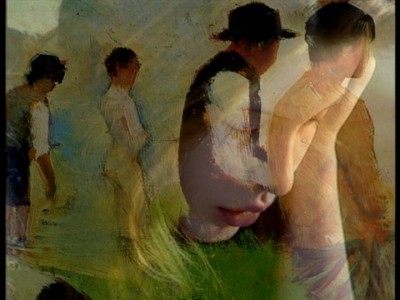
The form this reckoning takes is pointedly, jarringly televisual: Histoire(s) du cinéma was conceived and produced as a series for French television, and its framing scenario is that of Godard sitting in his office, contemplatively puffing on a cigar, alone and reflective, surrounded by vast numbers of books and armed with a typewriter, a film editing bay, and the video camera with which he captures the proceedings as he runs clip after clip from widely disparate times and places in cinematic history, creating many a suggestive juxtaposition and overlap, both between films as part of cinematic history and between Film and History, throwing in a smoky sit-down interview with famed French critic Serge Daney and his own mini fictional/allegorical interludes (featuring Julie Delpy and Juliette Binoche, among others) for good measure. In the process, Godard casts his allusive net ever wider; his visual conflations of literature, painting, and music come fast and furious, with flashing, shifting, and punning intertitles; voiced-over quotes, ponderings, and opining; and literally hundreds of film clips used (and often manipulated--slowed down, sped up, repeated, as if being replayed in one's memory) as accompanying citations, along with copious glimpses of paintings famous (Vermeer's Girl with the Pearl Earring, for example) and relatively obscure, propelling us along Godard's tortuous path. The digressive, stop-and-start, hurry-up-and-wait rhythm (familiar from virtually any of his films, actually) of our journey is the result of the agonized, conscience-stricken, relentlessly probing, and rigorously skeptical attributes of Godard's quest to locate, through a process of trial and error that is Histoire(s) du cinéma's "action," the place that cinema fits, what it could possibly mean, in the farthest-ranging contexts of art, culture, history, and politics.
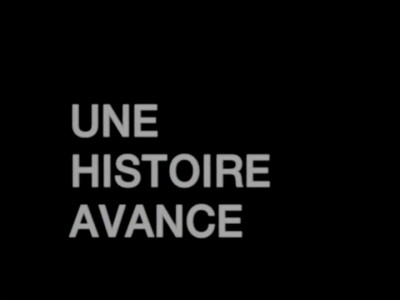
This odyssey is a circuitous and extraordinarily long one (clocking in at a total of four and a half hours), and only someone utterly unfamiliar with any of Godard's work will be surprised to discover that it does not go from A to B to C, but instead from A to Q to D, then a detour to Z, which connects back to A once again, and so on. That doesn't mean that Histoire(s) du cinéma is some shapeless, formless mass; it's just that its structure is not immediately, directly discernible, reflecting as it does the highly idiosyncratic, incomparably dynamic, ultimately insatiable thoughts and thought processes of Jean-Luc Godard. If the most poetic language is that which defamiliarizes the words and phrases we already know too well, rearranging and concentrating them so as to render them strange, "difficult," and freshly visible and present rather than taken for granted, then what Godard has created by isolating, slowing down, speeding up, and recontextualizing all of Histoire(s) du cinéma's more or less familiar fragments of cinematic history is a poetic project, with all the multifaceted complexity and paradoxically simultaneous intellectualism and sensuousness thus entailed for the galvanized, exhilarated reader/spectator. It is somehow fitting that, whereas most of Godard's purportedly fictional-narrative films work more like essays/criticism, his big critical-essay film works more like poetry; it is dense with the kind of riches that make the effort required to discover them so very well worth it.
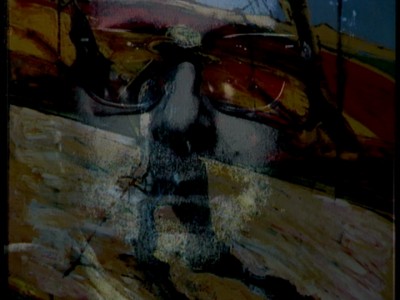
THE DVD:
The visual quality here is, very intentionally and precisely, VHS-style, with all of the accompanying blur, squiggle, random aspect ratios, and tracking difficulties, each of which clearly seems to possess its own useful and even beautiful aesthetic properties in Godard's eyes. Don't expect a pristine image (why a pristine image for a medium so far from pristine? Godard would surely ask), but Olive Films has transferred Histoire(s) du cinéma to DVD, at its original aspect ration of 1.33:1, with the utmost respect for its visual integrity.
Sound:The Dolby Digital 2.0 soundtrack (in French with optional English subtitles) delivers one of Histoire(s) du cinéma's most important elements--its carefully designed, deliberately layered sound, including music, voice-over narration, and the soundtrack of the film clips it encompasses--with perfect clarity and fullness.
Extras:None.
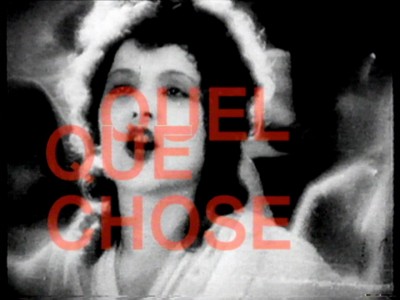
Far more than a documentary about the history of cinema, Godard's massive, sprawling, yet incredibly dynamic and fleet meditation represents nothing less than one of the medium's greatest masters confronting (and attempting the near-impossible feat of making some kind of sense of) the endless contradictions, flaws, compromises, and possibly even crimes with which its story is riddled. Histoire(s) du cinéma is the furthest thing imaginable from a jaunt down a milepost-demarcated memory lane; it's difficult, unabashedly literate on multiple levels, elusive, and exasperating. It is also--not despite, but because of all those qualities--an indispensably mind-blowing, inspiring experience for anyone who still thinks the cinema is worth taking seriously. Highly Recommended.
|
| Popular Reviews |
| Sponsored Links |
|
|
| Sponsored Links |
|
|
| Release List | Reviews | Shop | Newsletter | Forum | DVD Giveaways | Blu-Ray | Advertise |
|
Copyright 2024 DVDTalk.com All Rights Reserved. Legal Info, Privacy Policy, Terms of Use,
Manage Preferences,
Your Privacy Choices | |||||||














